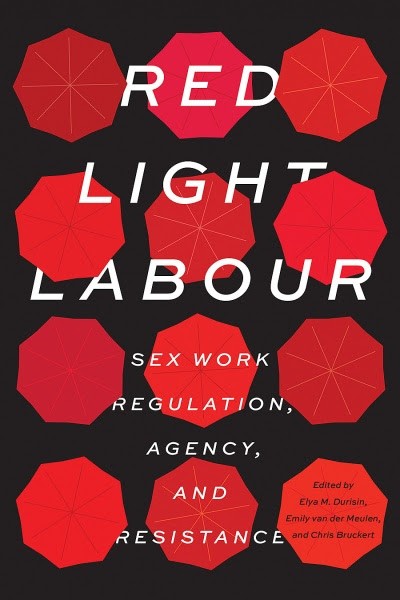SWAN contributed a chapter to the book, Red Light Labour: Sex Work Regulation, Agency, and Resistance.
Written in collaboration with lead authors Tamara O’Doherty and Hayli Millar, SWAN’s chapter is titled, ‘Misrepresentations, Inadequate Evidence and Impediments to Justice: Human Rights Impacts of Canada’s Anti-Trafficking Efforts.’
Chapter excerpt:
“This chapter presents some key findings of the study, which examined the human-trafficking cases prosecuted in Canada between 2002 and 2014. The study’s findings expose some of the main consequences of a single narrative and exaggerated representations of human trafficking not only for SWAN and the immigrant and migrant sex workers it supports but also inrelation to the ability of the criminal justice system in successfully prosecute human-trafficking cases and to adequately respond to all trafficked persons. These results demonstrate the pressing need for more nuanced representations that better reflect the complex needs of those with lived migration and sex work experiences as the only way to create truly responsive services in order to meet those needs. Misrepresentations and exaggerations perpetuate marginalization and ultimately contribute to a systemic inability to address exploitation in effective ways.”
Book description:
In 2013, the Supreme Court of Canada ruled unanimously that key Criminal Code provisions relating to sex work were unconstitutional. Canada v. Bedford gave Parliament one year to update the laws. The landmark decision provoked renewed interest from researchers, policy makers, news outlets, and the public but little new insight into sex work.
Red Light Labour addresses Canada’s new legal regime regulating sex work with an advanced analysis of past and present policy approaches, and considers the ways in which laws and those who uphold them have constructed, controlled, and criminalized sex workers, their workspaces, colleagues, and clients. This groundbreaking collection also offers nuanced interpretations of various forms of commercial sexual labour that foreground the personal perspectives of workers and activists. The contributors highlight sex workers’ struggles for civic and social inclusion by considering their tactics, successes, and challenges as they work collaboratively and build alliances with diverse social movements.
Red Light Labour advocates for social and economic justice within a sex-work-as-labour framework. This book is a timely intervention that showcases up-to-date legal, policy, and social analysis of sex work in Canada.
Red Light Labour will be of interest to scholars and students of labour, sexuality and gender, socio-legal contexts, and criminology. It will also find an audience among advocates, policy makers, and researchers in areas related to sex, gender, labour, and human trafficking, as well as with the general public.

